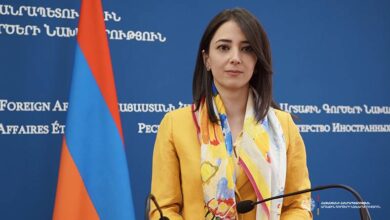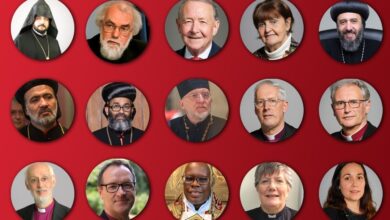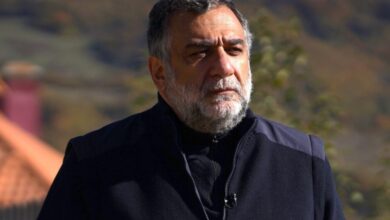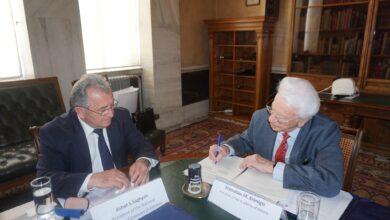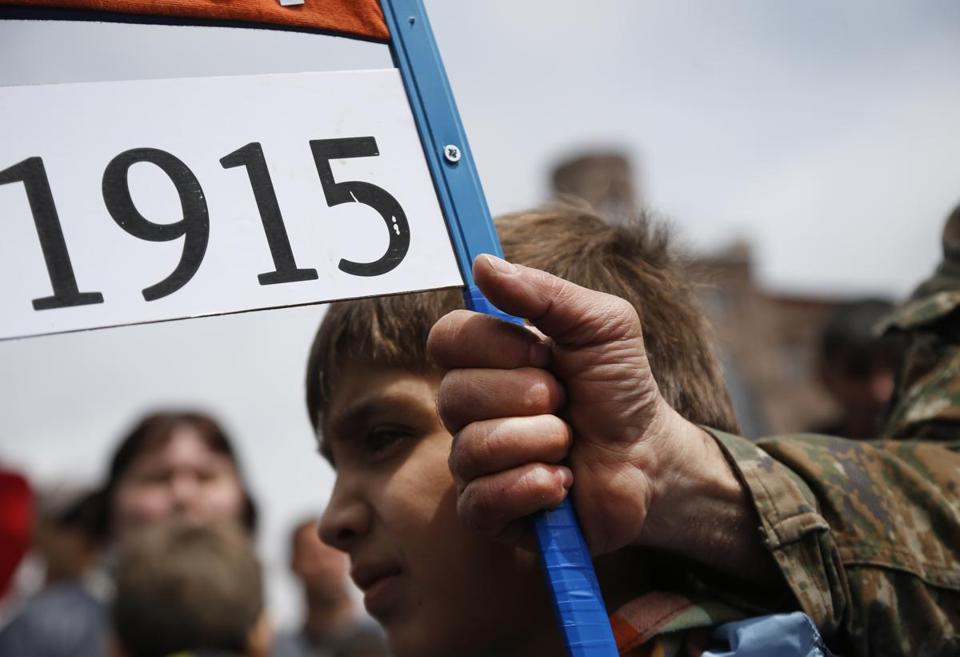
Photo: AP
By Chris Bohjalian
The Boston Globe
Adolph Hotler kept a bust of Ataturk in his office. Heinrich Himmler considered moving to Turkey in the early 1920s. And Rudolf Hoess, commandant of Auschwitz, admitted in his memoirs (penned while awaiting his execution) that he first killed while serving in the Ottoman Empire in the First World War. Make no mistake: The Young Nazis were serious fanboys of the Yung Turks.
The term “Young Turk” today, of course, has come to mean a hard-charging young executive, a bullish entrepreneur who takes no prisoners. A century ago, however, the Young Turks — Talaat Pasha, Djemal Pasha, and Enver Pasha — were the leaders of the Ottoman Empire and the architects of the Armenian genocide: the systematic annihilation of 1.5 million Armenians during the First World War. Three out of every four Armenians living under Ottoman rule were killed by their own government; the nation, outside of Istanbul, was ethnically cleansed of its Armenian, Assyrian, and Greek minorities.
And the Germans, the Ottoman Empire’s ally, were there. They saw it all. The cables from the German diplomats from Aleppo to Erzurum that chronicled the slaughter are as clear as the photographs that German medic Armin Wegner took of starving children and dying women. And while some of those Germans were aghast at what they were witnessing, others clearly were inspired.
After the war, Mustafa Kemal — Ataturk — finished the work of the Young Turks, turning his armies on the Armenians and the Greeks, forcing them out and creating what he hoped would be a homogenous Turkic nation. No minorities to muddy the agenda. Then, with Stalin-like fanaticism, his government began to rewrite history, denying the carnage. Armenians went from victims to traitors; the true story was erased. It’s why Turkey today continues to deny the genocide with pathologic obsession. The last thing they want is for Mustafa Kemel and the Young Turks to be saddled with the moniker “war criminal,” or their nation to risk the sort of reparations that accompany the term “genocide.”
Today is April 24, the day when Armenians around the world commemorate the start of the Armenian genocide: It was that night in 1915 when the Ottoman authorities rounded up the Armenian political, intellectual, and religious leaders of Constantinople and executed almost all of them.
To commemorate this devastating anniversary, the president of the United States will likely find yet another euphemism for the word “genocide,” because heaven forbid America should risk antagonizing Turkey by describing accurately what happened and assigning the blame where it belongs. Trust me, some poor White House speechwriter’s thesaurus is looking pretty dogeared right about now.
Congress has not formally recognized the Armenian genocide either, and I’m not expecting this one to put moral spine before realpolitik.
But, fittingly, Germany has. Last year the German Parliament voted overwhelmingly in favor of calling the massacres a genocide.
Historians often note how the last stage in genocide is denial, and that denial becomes the first stage in the next one. As a character in one of my novels remarks, “There is a line connecting the Armenians and the Jews and the Cambodians and the Bosnians and the Rwandans. There are obviously more, but really, how much genocide can one sentence handle?”
The Holocaust might have occurred even without the precedent of the Armenian genocide. But as historian Stefan Ihrig proves in his book “Justifying Genocide,” the Young Nazis were there when the Young Turks were at work. They saw how easy it was to blame the problems of the nation on one small ethnic minority, and then rationalize their murder. They grew bold. As Hitler said to his Wehrmacht commanders on Aug. 22, 1939, a week and a half before unleashing his Panzers on Poland, “I have placed my death-head formation in readiness with orders to them to send to death mercilessly and without compassion, men, women, and children of Polish derivation and language. Who, after all, speaks today of the annihilation of the Armenians?”
That is precisely why today America must stop mincing words when it comes to the Armenian genocide.


